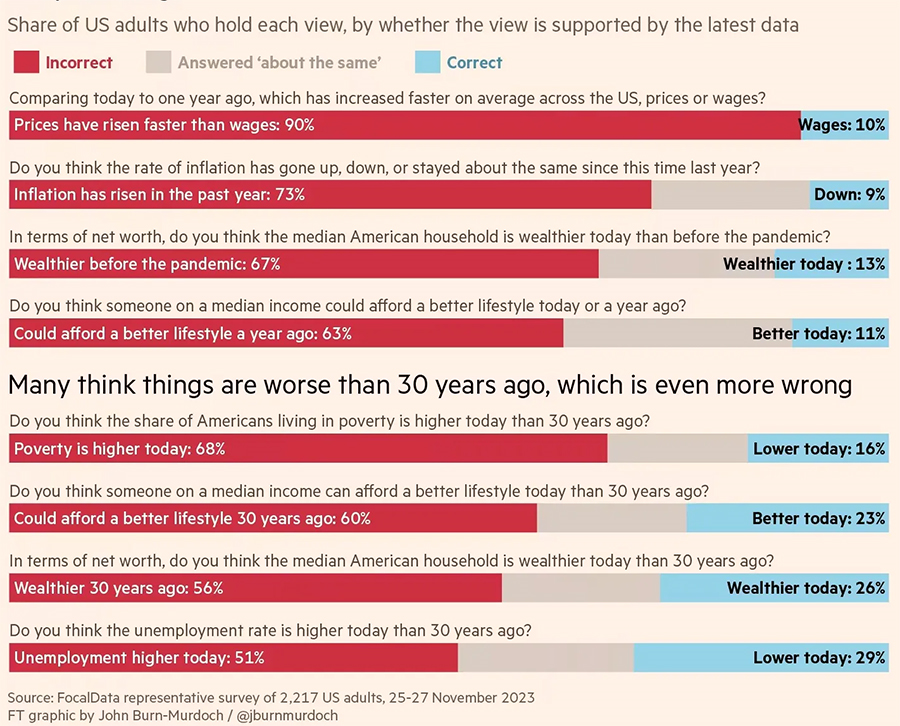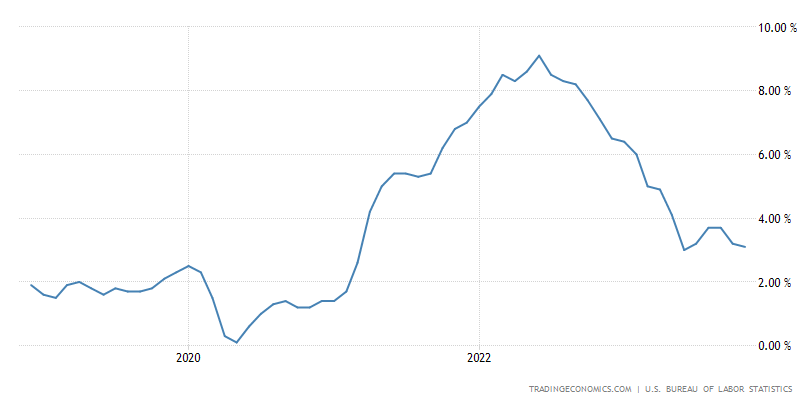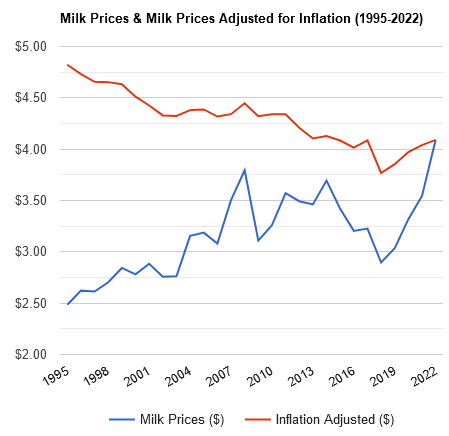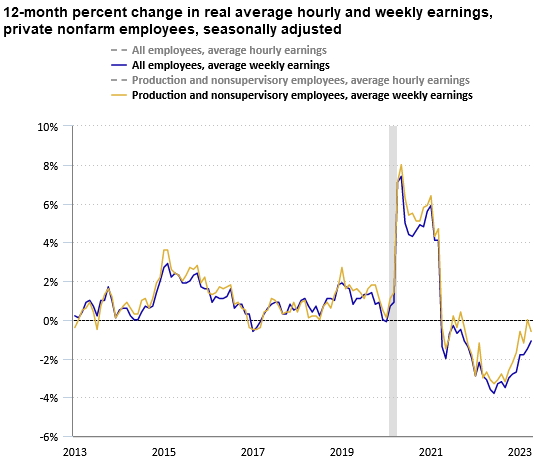Responders have no incentive to answer correctly or honestly.
Polls are not high-stakes exams with one's future at stake. Nor are they quiz shows that award prizes for the correct answers.
Consider a responder who knows all the correct answers but passionately hates whichever party/president happens to be in power. She'd probably prefer to use this as an opportunity to express/vent her negative opinions than to give any correct answers.
So, instead of asking why their perceptions are so incorrect, one might instead ask why the answers they choose to give are so incorrect.
(This by the way is why economists tend to place a low value on what people say and more on what people do.)
(Note: I don't disagree with most of the points given in the two highest voted answers. This answer is just to supplement those other answers with a small point that doesn't seem to be mentioned yet.)
To further illustrate my point, suppose we changed the median household wealth question to this:
It is a fact that between 2019 and 2022, real median household net worth (or wealth) increased by $X, where
X = 72 × 34 - 93 × 14 + 913 × 32 - 53 × 119 + 512 × 66 - 82 × 96 + 73 × 25.
(Note that X could be negative.)
Do you think that X is positive, negative, or about zero?
Consider the difference in the percentage of correct answers if respondents were given sufficient time to answer and were also given $100 for the correct answer (versus the typical poll where respondents are pressured to respond quickly† and have no incentives to give the correct answer).
In the setting of a typical poll, most respondents will of course be unsure of the correct answer to the above question. And so, lacking time and incentives to solve the above problem, they may choose to simply and quickly give the answer that paints a negative picture of the economy and those in power.
This is not an outright lie. Instead, it's just a quick answer to an incentiveless poll that saves them their time and mental effort and also serves as a free opportunity to vent.
According to the Survey of Consumer Finances (2022, p. 12), real (household) median net worth was $141,100 in 2019 and $192,900 in 2022. That is an increase of $51,800 (which is the value of X above).
†In theory, poll respondents may have unlimited time to answer each question. But in practice, respondents will answer quickly in order to (1) save their own time; (2) not be embarrassed about wasting the pollster's time; (3) not sit for an hour in awkward silence; (4) not be embarrassed about appearing stupid and having to take an hour to answer a simple three-choice question.



